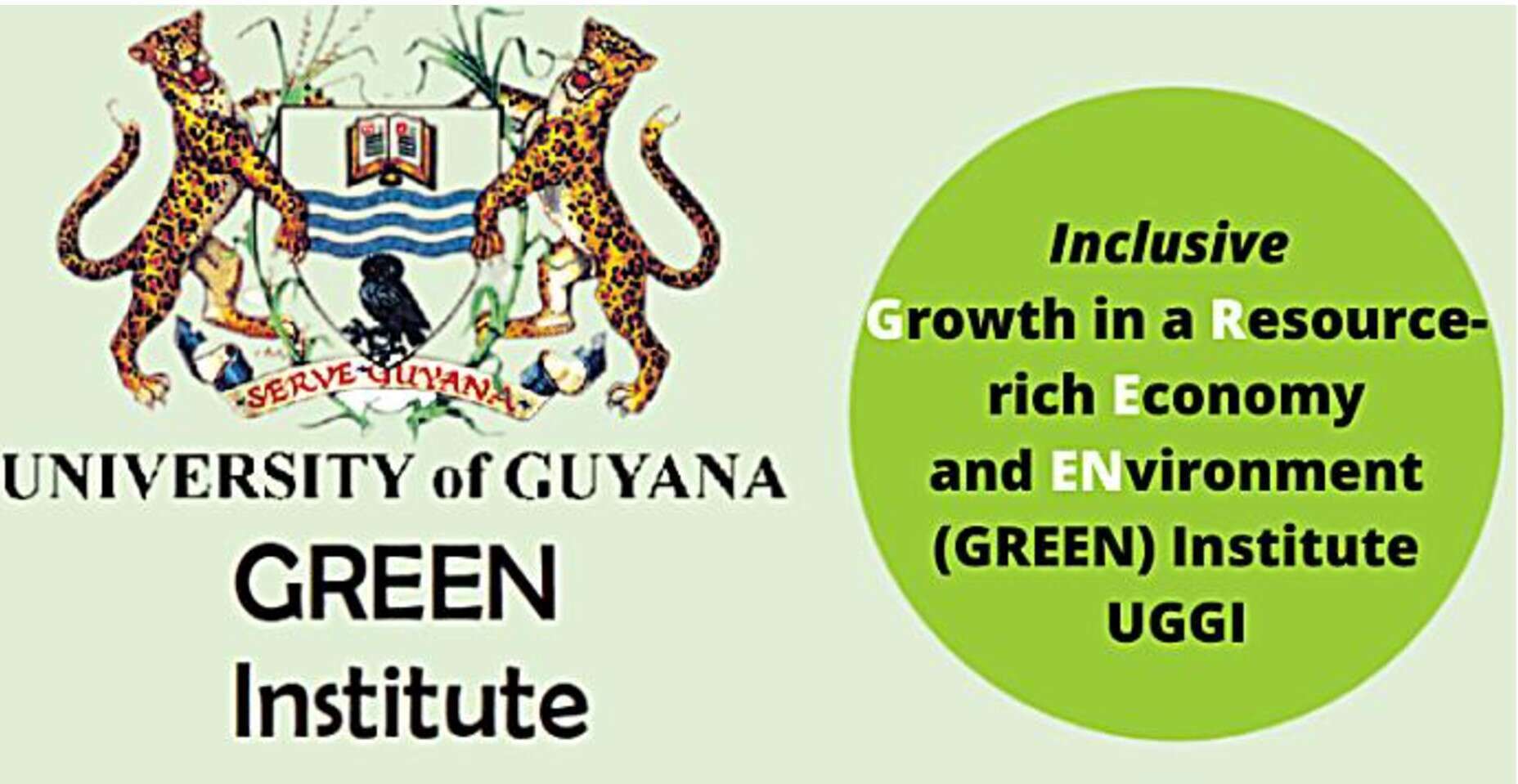
2021 Green Economy Workshop
Oct 18-21, 2021
University of Guyana GREEN Institute
University of Guyana GREEN Institute
CALL FOR PAPERS
Climate Change & Energy Transition: Challenges and Paradoxes of Resource Abundance
Co-Chair: Dr. Jay Mandle, Emeritus Professor of Economics, Colgate University, USA
Co-Chair: Dr. Paulette Henry, Dean, Faculty of Social Sciences, University of Guyana
Conference Keynote Talk
Economic Diversification in Resource Abundant Economies
Prof. Michael l. Ross, Professor in the Political Science Department and the Institute of the Environment and Sustainability at the University of California, Los Angeles
Plenary Keynote Talks
Social Learning & Voluntary Cooperation in the Context of Resource Abundance
Prof. Edward Cartwright, Prof. of Economics, De Montfort University
Transport and Spatial Economic Behaviour in an Emerging Oil and Gas Economy
Prof. Roger Vickerman, Visiting Professor and Chair, Transport Strategy Centre, Department of Environmental and Civil Engineering, Imperial College
Community-Based Natural Resource Management for Sustainable Governance of Wildlife
Dr. Brian Child, Asst. Prof. of Geography, University of Florida
Suggested Topics
|
Economy An Upstream Carbon Tax for Net-Zero: Cooperation & Design Issues Oil & Gas Revenue Management: Case Studies and Lessons Renewable Energy: Oil Companies’ Response to Energy Transition |
Society Urbanization and Rents: Cities, Social Networks & Governance Resource Rents, Trust and Institutions The Virtual Learning Impact during Covid-19 |
|
Environment Enhancing Resilience with Natural Infrastructure and Green Building Specific Wildlife & Ecosystem Services: Governance Issues Recycling, Incentives and Norms |
Technology Using Windfall Revenues: Infrastructure, Transportation & Energy Technology Learning, Diffusion and Adoption for Natural Resource Management The Digital Revolution in Teaching STEM during Covid-19 |
Round Tables: (These will be announced later)
Conference Objectives:
- Establish a “Working Group” for a National Investment & Diversification Policy for Oil and Gas Revenues
- Promote the work of UGGI and fulfil UGGI mandate for annual GE Workshop
- Recruit UGGI Associates
- Test ideas for UGGI academic programmes
Context
The many challenges and paradoxes of resource abundance – all implicit in the idea of the resource curse - have been aggravated by the increased magnitude and frequency of climate-related events that have had catastrophic effects on the livelihoods of people in developed and developing countries.
It is not unusual to hear of oil-rich countries experiencing economic difficulties and social upheavals because of their dependence on oil; yet those very countries, undiversified and conflict-ridden as some of them are, must now deal with the implications of energy transition. That is both a challenge and a paradox. Or what of developing economies that have contributed little to global warming, or have even been making contributions to the stabilization of climate, now having to adapt to these realities without the promised climate finance and technology transfers, and then being told that a newfound resource such as fossil fuels must not be developed if the world is to achieve the essential net-zero emissions target by 2050?
As COP 26 approaches, now is the time to consider the options that resource-abundant and indeed all developing countries must preserve in order to avoid any contradiction between development and net-zero emissions. The GEW will include keynote and invited speakers, roundtables, working groups and discussion papers that will be compiled into an edited volume. Abstract submissions are welcome at the link provided.